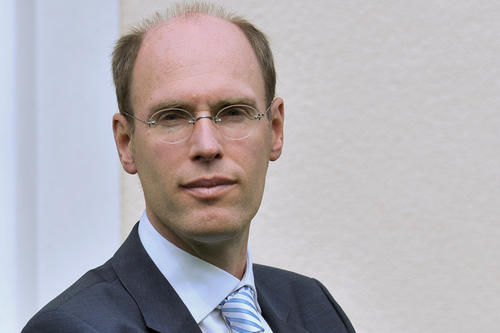“That was inconceivable in the 1950s”
Professor Peter-André Alt, the president of Freie Universität Berlin, on Israeli-German cooperation in research, teaching, and the promotion of young researchers
Dec 22, 2015
Professor Peter-André Alt is the president of Freie Universität Berlin.
Image Credit: Bernd Wannenmacher
The subject was current challenges, plans for the future – and shared history. For the first time, university presidents and rectors from Israel and Germany met at Freie Universität. The guests were invited to the event by the German Rectors’ Conference (HRK) and its Israeli counterpart, VERA. The meeting, which was held on November 25, had been prepared by Freie Universität and the Hebrew University of Jerusalem, one of its strategic partner universities. Professor Peter-André Alt, the president of Freie Universität Berlin, takes stock.
Professor Alt, this kind of meeting had never been held before. What topics were discussed?
We talked first about fundamental questions in academic and scientific collaboration: What can academia and the research sector do to enhance understanding between countries and people during difficult times? What is it about academic cooperation that binds people together? History offers a good example in this regard: Cooperation in the field of academia and the sciences was one of the engines driving the initiation of diplomatic relations between Germany and Israel 50 years ago. It is nice to see how trusting and friendly the working relationship is now. Awareness of our shared history will always shape how the two countries work together, and yet, at this meeting, the talk was primarily of the present and the future. That was part of the reason that our main subject was how to work together to support junior scholars and scientists.
Why is it so important to support young scientists and academics jointly?
Junior scholars, scientists and researchers are supposed to spend part of the period of their education in another country. These phases can be put to much better use if there is a close cooperative relationship between the home institution and the host university. This is apparent from the joint programs that we have organized with our strategic partner university, the Hebrew University of Jerusalem, such as the “Human Rights under Pressure” research training group in the social sciences.
What differences are there between German higher education institutions and Israeli ones?
Germany has a strong support system in the form of the German Research Foundation (DFG). Our colleagues in Israel are envious of that. Israel also does not have mid-level faculty the way we do, so supporting junior scholars and scientists is harder because there are no positions for them. However, Israel does have a highly active start-up and innovation scene from which funding also flows back into the research sector. We can learn from the Israeli higher education institutions how fruitful the interaction between fundamental research and entrepreneurship is.
What plans are there for further expanding the cooperative relationship?
All participants signed a policy paper agreeing to expand joint support options for doctoral candidates, establish more joint doctoral programs, and enhance the mobility of junior scholars and scientists. The support that is provided is also supposed to continue past a candidate’s dissertation. We want to pave the way for German-Israeli careers by creating positions for postdocs and establishing junior research groups.
What plans are there at Freie Universität?
I could easily envision the creation of additional joint doctoral programs – in the natural sciences, for example – in addition to the research training group on human rights. The postdoctoral fellowship program should also be expanded. Those who study or do research at a university other than their own alma mater, either while they are still students or at the start of their career, absorb knowledge and build up relationships and contacts. As we have learned over the past 50 years, this is how a lasting network is formed, a network that not only contributes to excellence in scientific and scholarly inquiry, but also to understanding between Germany and Israel.
This text originally appeared in German on December 2, 2015, in the Tagesspiegel newspaper supplement published by Freie Universität.

